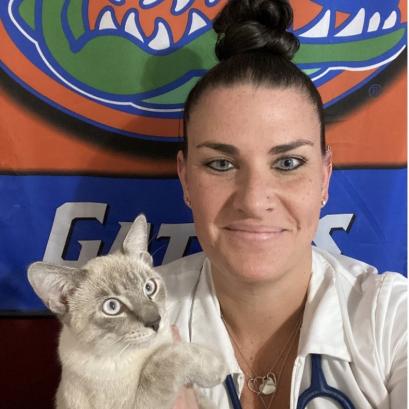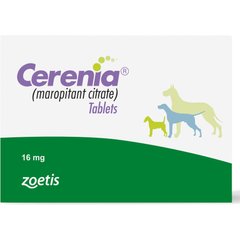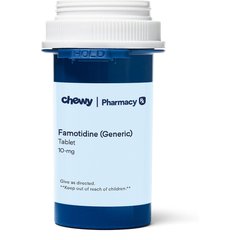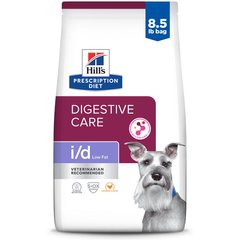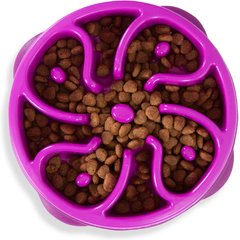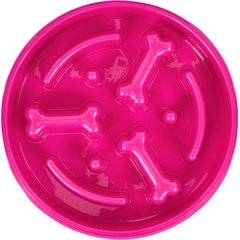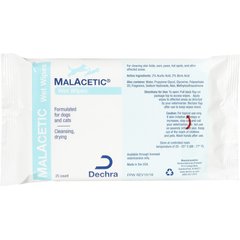Upset Stomach in Dogs: Signs and What To Do
Rike_/iStock / Getty Images Plus via Getty Images
Dogs can have gastrointestinal problems just like people do.
Pet parents may wonder what to feed a dog with an upset stomach or ask themselves, “What can I give my dog for an upset stomach?”
Before you reach in your medicine cabinet for a remedy, it’s important to speak with a veterinarian for guidance.
Key Takeaways
- Upset stomachs in dogs are generally short-lived, lasting a day or two.
- However, in some cases due to underlying diseases, dogs can experience gastrointestinal upset for several days and require veterinary intervention.
- It’s important to always ask a veterinarian before giving anything to your dog for an upset stomach.
What Is Upset Stomach in Dogs?
An upset stomach can be caused by a wide variety of conditions in dogs, some serious and some less significant.
An upset stomach in a dog, as with people, is caused by an abnormality in the gastrointestinal (GI) tract. The digestive system consists of organs that receive and process food, including the esophagus, stomach, liver, gallbladder, pancreas, intestines, rectum, and anus.
While an upset stomach is common in dogs, it’s not easy to judge what symptoms would warrant a visit to the veterinarian and what can be remedied at home.
Gastroenteritis is the medical term used when inflammation or irritation is present in the stomach or intestinal tract. Symptoms of an upset stomach are often transient, lasting only a day or two.
However, they may also persist, which indicates the possibility of a more serious problem. Symptoms lasting longer than two days require medical intervention by your vet.
Some causes of an upset stomach in dogs can be emergencies, especially if there is blood in the vomit or stool (i.e., hemorrhagic gastroenteritis).
If left untreated, some causes of upset stomach can be fatal, so it’s always important to consult your veterinarian when your dog is not feeling well.
Symptoms of Upset Stomach in Dogs
Common symptoms of an upset stomach in dogs include:
-
Lip smacking, or excessively licking the lips and other surfaces
-
Excessive stomach noises
-
Belching or passing gas
-
Diarrhea or soft stool
-
Straining to defecate (tenesmus)
-
Abdominal pain, characterized by vocalization when you pick up your pup, or when they stretch with their front legs on the floor and hind legs standing
-
Elevated body temperature (fever)
Causes of Upset Stomach in Dogs
A dog’s upset stomach can have many possible causes, ranging from eating a different food, to ingesting foreign material, to development of a systemic disease.
Although dogs of any age can develop an upset stomach, puppies and senior dogs are more susceptible, since they have weaker immune systems.
Common causes of an upset stomach in dogs include:
-
Bacteria
-
Viruses
-
Parasites
-
Medications
-
New food or treats
-
Eating too fast
-
Abrupt diet change
-
Ingestion of foreign material
How Veterinarians Diagnose Upset Stomach in Dogs
If your dog has an upset stomach, your veterinarian will start with a complete physical exam and medical history.
Be honest with your vet about any new food, treats, or table food your dog has ingested.
It’s also important to let them know about any potential toxins your dog may have gotten into, including medications, house plants, cleaners, chemicals, drugs, or rat poison.
When you take your dog to the vet for an upset stomach, bring a fresh sample of their stool for parasite testing. If you think your dog got into a toxic food item or substance, bring the packaging so your vet can assess the ingredients.
Your veterinarian may perform diagnostic testing to determine the underlying cause of your dog’s symptoms. Blood work, including a complete blood count (CBC) and chemistry panel, is performed.
In addition to blood work, fecal screening for abnormal bacteria and urine testing are often done. An X-ray or ultrasound of the abdomen may also be performed to assess your dog’s internal organs, including the digestive system.
Depending on the results of this testing, more specific blood or fecal testing may be recommended to look for specific conditions, such as parvovirus, pancreatitis, or salmonellosis.
If these tests are inconclusive and your dog's symptoms persist, more advanced diagnostics—such as endoscopy, exploratory surgery, or biopsy of the GI tract—may be performed.
Dog Upset Stomach Treatment
Treatment for your dog’s upset stomach depends on how long it has been an issue and the underlying cause.
If your dog has had an upset stomach for less than 48 hours and they are still eating and drinking, not lethargic, and have no blood in their feces or vomit, you can try to manage the issue at home.
You can feed small amounts of a bland diet, such as boiled white-meat chicken and white rice with no salt, fat, or seasonings.
If your dog is having diarrhea, you can add fiber by giving canned 100% pumpkin puree or a fiber powder.
Probiotics can also help relieve an upset stomach.
If your dog’s upset stomach has persisted for longer than 48 hours or if they have any symptoms in addition to vomiting and diarrhea, they should be treated by a veterinarian.
Treatment can range from oral medications sent home with you to hospitalization and intensive care. Common treatments include:
-
IV fluids for dehydration
-
Antibiotics for diarrhea or a bacterial infection
-
Antinausea medication, such as Cerenia
-
Antacids such as omeprazole or famotidine
-
Probiotics and fiber supplementation
-
Pain medication, which may be oral or injectable (depends on a pup’s symptoms)
-
Plasma or blood transfusions
-
Deworming or antiparasitic medications
Depending on the severity and the cause of your dog’s upset stomach, your vet may recommend a period of fasting to rest your dog’s digestive system.
Other times it might be necessary to place a feeding tube to ensure your dog receives proper nutrition for recovery.
A special diet, such as a low-fat or hydrolyzed protein diet, may be instituted to help with your dog’s upset stomach. If the diet helps, your vet may recommend that you continue feeding it long-term.
If your dog has a foreign object blocking their stomach or intestines, your vet will recommend surgery to remove it. If your dog has ingested a toxin, your vet may induce vomiting or administer activated charcoal.
Recovery and Management of Upset Stomach in Dogs
Your dog’s recovery from an upset stomach may take a few days to a few weeks, depending on the cause.
Some underlying causes, such as inflammatory bowel disease, can require life-long management with treatments such as oral medication, probiotics, fiber, and a special diet.
While your dog recovers from an upset stomach, it’s important to give them plenty of rest and affection. Take them on enough walks to prevent accidents in the house, but not so many that they get overtired.
Avoid playdates with other dogs and too much activity with their housemates. If your dog eats too quickly, you may consider a slow feeder bowl.
Prevention of Upset Stomach in Dogs
To prevent your dog from developing an upset stomach, ensure they eat only the recommended portion of their regular dog food. Table scraps, especially high-fat or toxic foods, are not recommended for dogs.
If you need to change your dog's diet, it’s always best to consult your veterinarian and slowly transition the diet over seven to 10 days.
If your dog frequently visits dog parks or doggy day care, wipe down their paws before they have a chance to lick them, to help prevent ingestion of any contagious microbes.
Upset stomachs in dogs are understandably concerning for pet parents.
While dogs can develop upset stomachs for a variety of reasons, some dogs can recover at home while others require treatment.
If your dog is feeling under the weather, a veterinarian can recommend the best course of action to take to help them feel better.
Upset Stomach in Dogs FAQs
What can I give my dog for an upset stomach?
It’s important to always ask a veterinarian before giving anything to your dog for an upset stomach. There are certain medications that can be prescribed to help him feel better. Feeding a bland diet—such as boiled chicken and white rice—can be helpful.
How long does an upset stomach last in a dog?
Upset stomachs in dogs are generally short-lived, lasting a day or two.
However, in some cases due to underlying diseases dogs can experience gastrointestinal upset for several days and require veterinary intervention.
How do dogs lie down when their stomach hurts?
If a dog’s stomach hurts, he will often stretch his front legs out and hold his hind end in the air.

